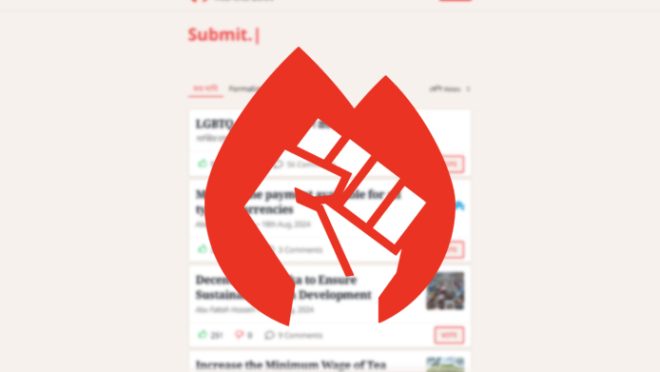Jonogon: Empowering voices, ensuring transparency for a better Bangladesh
Jonogon: Empowering voices, ensuring transparency for a better Bangladesh

Background
Jonogon was created in response to the 5 August uprising, which had a significant effect on Bangladesh and gave rise to a new vision for the country’s future.
In the wake of this uprising, there was a call to establish “Bangladesh 2.0,” a progressive initiative aimed at using technology and innovation to prevent similar disasters in the future.
This call inspired an impressive response, bringing together a diverse community of 2,500 people from a wide range of backgrounds, including engineers, designers, artists, entrepreneurs, media personalities, and attorneys.

Together, they shared the mission of working together and utilising modern technology to build a more secure and resilient Bangladesh.
Naseef Fatemi, founder of delivery platform DeliveryHobe and one of the co-founders of the platform, said, “Jonogon was started because we believed people’s voices could be heard without spilling blood or blocking the streets. There had to be a better way. Some of the smartest people, over 3000 of them in the country, felt the same and started building it!”
Jonogon is a platform made by people for the people of Bangladesh to raise their voices and be heard. Launched in August, Jonogon allows people to submit petitions about important issues ranging from local problems like traffic congestion to bigger concerns like government policies without having to protest in the streets.
In a country where protesters often take to the streets, Jonogon offers a peaceful alternative: an online space where citizens can submit petitions, gather public support, and get real responses from the authorities. Naseef also said, “If you can get enough votes, we will guarantee you an answer.”
The idea behind the Jonogon platform is simple. According to the founders, Hussain M Elius, co-founder of Pathao, and Naseef Fatemi, founder of DeliveryHobe, they wanted to make the process of meeting the demands of people more systematic without the need for violence, roadblocks, and traffic congestion that disrupt the everyday lives of people.
How does it work?
Users can create an account using a phone number on the Jonogon website. Users can create petitions and fill in the necessary details and a brief description of their demands to relevant authorities.
When enough people support a petition, Jonogon’s legal team steps in, turning it into a formal request and submitting it to the right authorities.
What makes Jonogon unique is that every petition, whether approved or not, gets a response explaining the decision. This initiative aims to ensure more transparency in addressing different issues.
What makes it any different from change.org?
Change.org is a global platform for signing petitions; however, Jonogon is a local petition platform. Naseef said, “We’re simpler and designed for Bangladeshis. We also take it upon ourselves to get you answers and results, while change.org tells you how to do it yourself after gathering the votes. We don’t see that method working in Bangladesh.”
What makes Jonogon different is that you have to login through a verified phone number so that only legitimate citizens can use this platform. They also have a plan to introduce NID verification, ensuring more security.
At its heart, Jonogon is about empowering communities and individuals to create positive change. Whether it’s fighting for more accountability, advocating for social justice, or simply making sure local problems are addressed, Jonogon gives people a direct path to be heard.
Regarding the future expectations about the platform, Naseef said, “In the long run, we see this turning into the backend for demands to the government, and it is in the hands of Bangladeshis. Once a demand has been accepted on the website, the Jonogon (viewers of the website) will be able to observe its progress to ensure complete transparency and a structured, reliable way to get real-time updates for our demands.”


